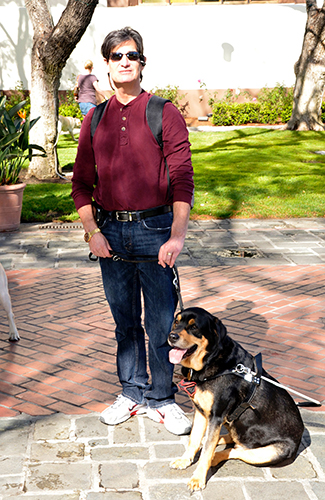When you think of a vacation, you think of having fun, relaxing and trying new experiences. This is not so easy if your are visually impaired, especially if it is a new vacation location. It can become stressful, scary and a big ordeal, even if you have someone who is sighted going with you. What follows are a few tips and strategies for planning a vacation with vision loss. Hopefully they will help you enjoy your trip.

 Susan DeRemer, CFRE
Susan DeRemer, CFRE
Discovery Eye Foundation




